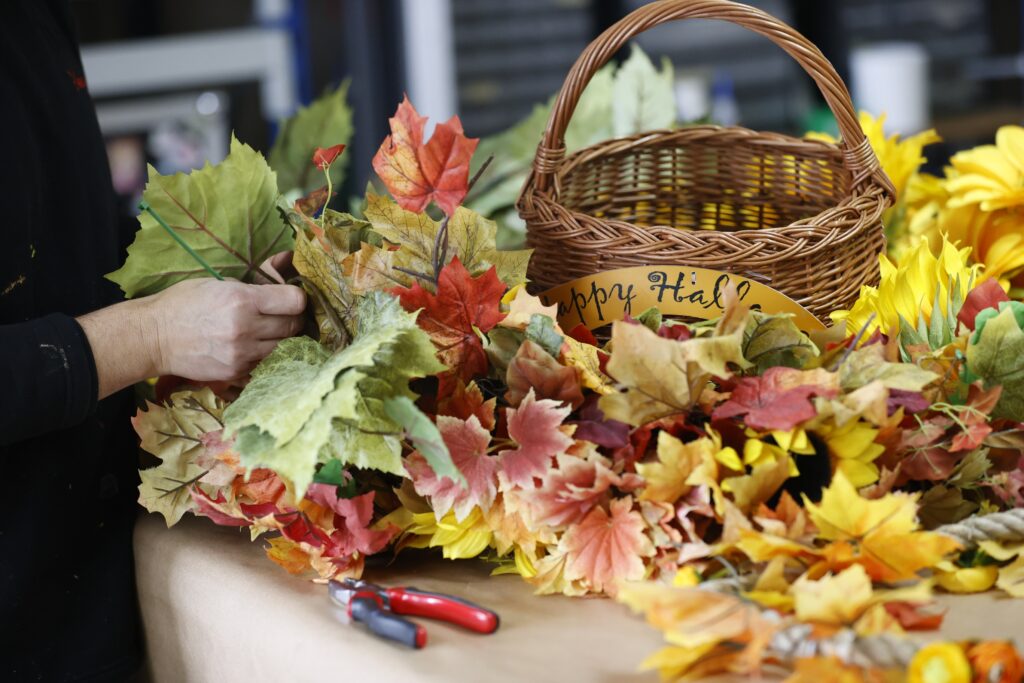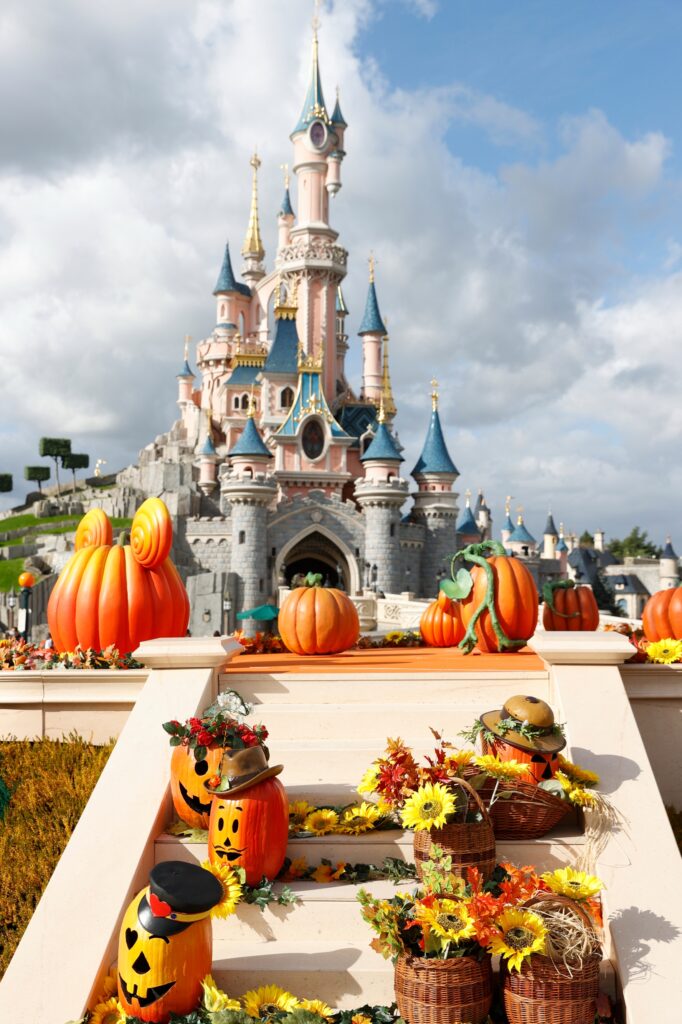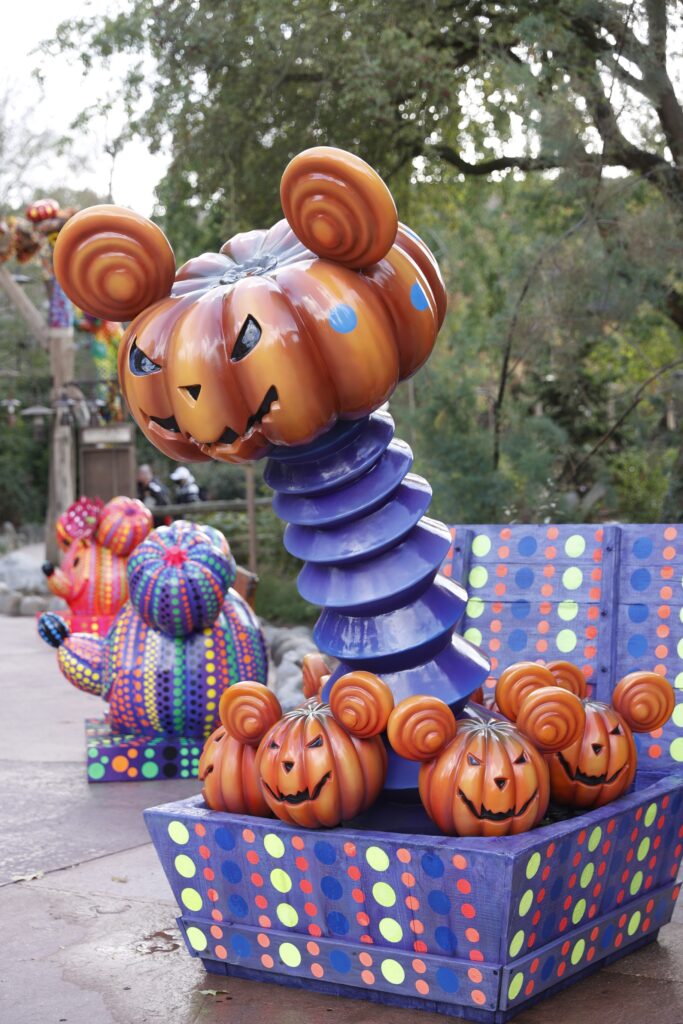Interview with Richard Vallet, Props director at Disneyland Paris
Published: October 8, 2020 / Last Updated: October 8, 2020 / By: Arvid Bux
The decoration workshop at Disneyland Paris is a little-known and yet essential service. It manufactures and repairs all the objects and accessories used during parades and shows at the resort, especially during the Disney Halloween Festival. Below an interview with Richard Vallet, props director in the workshop, who shares more about what his job is about.

How did you become a props director at Disneyland Paris?
I started at age 17 as a stagehand at the Théâtre Clavel in Paris, then I became assistant stage manager on several other Parisian stages. I did a bit of everything: changes of scenery, lights, sound, etc. I arrived at Disneyland Paris in February 1992 as a stagehand, and very quickly, I started repairing props between two shows. Our management understood the importance of such a service, and this is how the Disneyland Paris Decoration Workshop was born in 1994.
What does your job consist of?
My work consists of making decorative objects and accessories that come out of the imagination of a Show Director or are inspired by a film, intended for shows and seasons at Disneyland Paris. Very often, these are accessories that are a bit special, a bit “toon”, a bit magical. The challenge is that the object has to be believable, yet easy to use, light and durable. But it’s not just about creation; there is also the monitoring of these objects, their maintenance and repair, which occupies us throughout the year, day and night.
What is the Decoration Workshop team comprised of?
There are almost 20 of us, plus up to 10 part-timers who join us during more intense times like Halloween. Within the team, we have a wide variety of skills. Props director is a generic title, and we have colleagues who specialize in sewing, upholstery, and even in the making and maintenance of puppets. Many of us have changed from one specialty to another, and that’s how I was able to broaden my skill set. Molding, sculpture, painting, varnishing, modeling, it is very vast. It’s great to work at Disneyland Paris because it’s a great place to learn new techniques.
What objects did you make for the Disney Halloween Festival?
There are a lot of them, but I will say in particular the props of the ghosts of Main Street, U.S.A. and the Pumpkin Men in Frontierland. Without forgetting the “Funkins”, these very different little pumpkin heads, embellished with various accessories such as hats, eyeglasses and feathers. These are items that we have made in previous seasons and that we bring out regularly to delight guests.
How many objects does this represent?
So many! It takes about a hundred “Funkins”, plus Pumpkins, and garlands, which are hundreds of meters long. In all, it must represent more than 300 different elements.
How does the production of a decorative object work?
Everything starts from the Scenographers of the Disneyland Paris design office, who translate the vision of the Show Directors in graphic form. Their designs are absolutely beautiful and give us the information we need to make the objects. When manufacturing starts, they frequently come to see us in the workshop to make sure everything is running smoothly. These visits are also moments of creation. Seeing an object built in real size in front of their eyes sometimes inspires them to make small changes that they tell us directly: a few more patinas, a color to be nuanced or something else.
What materials do you use?
All kinds of materials. Resins, very often, but also metal and fabric. For some time now, our objects have been frequently made in Plastitrogen, a very practical foam for its lightness and strength. Polystyrene or polyurethane foam can also be used. We cut foams of different densities, we glue them, we put together and we paint them. For recurring objects, we can make models with earth or Plastiline. Then, for the molding, different polyurethane resins are used. And for slightly larger objects, it will be laminated resin, fiberglass or polyester resin, with silicone for impressions, or plaster. For some time now, we have been trying to use less and less resins, favoring healthier products. We also use latex for soft objects. Wood remains a safe bet. We carry a lot of wooden crates for the Pumpkins and for the Frontierland Jack-in-the-Box. It is also used for some structures, in place of metal, as long as it is not in contact with water. It is a very practical material.
Do you work alone or in a team?
For a small accessory or a worn object, we often work alone, unless there is a need for a special skill. On a larger project, we work together, especially when there are fabrics, sculpture, or welding. Take the Pumpkin Men, for example. They first need metal structures to give them their human position, which is then dressed in sculpted parts and clothes dipped in resin. The design office wanted it to be real clothes and the original colors to be found under the resin. However, these clothes are very heavy with resin, which makes handling difficult. In addition, we had to find techniques to give them an impression of lightness, naturalness, and to ensure that the resin hardens in the right position. We therefore need 2 or even 3 props to put on these clothes and keep them in place during hardening.
How long can it take to make an item?
This ranges from a few days to 2 to 3 weeks for a small object, and up to one or two months for a large project.
What are the essential qualities of a good accessory?
We work a lot on lightness. The techniques we use are very similar to those we use in the theater, except that we must pay particular attention to the durability, solidity and lightness of our objects, because the terms of use at Disneyland Paris are very different. Here, the accessories can be used up to 5 or 6 times a day. To give you an example, until last year, Donald’s nephews’ little pitchforks were made of resin. This year, we changed the material and managed to divide the weight by ten, without affecting the strength. This means even more comfort for our Characters and therefore even more pleasure to use them!
How do the decorative elements fit into a decor?
At the Théâtre du Château, there are pumpkins of slightly different colors, with green, purple and pink, as well as turquoise brambles coming out of the granite. We have adapted the scenery from last year, especially working on the colors to give the impression of being underwater.
Is there an object that you’re particularly attached to?
I really like Mr. Jack’s dog Zero from The Nightmare Before Christmas, which I made for a previous Halloween. It had posed some difficulty, as it was simply made of a sheet. It had to be as thin as possible, giving an impression of lightness, sometimes even transparency, but at the same time very solid. It took a lot of metal structures inside and a very delicate carving work had to be done for the little pumpkin-shaped nose and very thin ears, which I made out of aluminum. Zero is not at Disneyland Park this year, but it was a particularly interesting project for me.
How inspired are you by Disney films?
Depending on the project, in addition to the many design office drawings, I often refer to Disney films to see characters or objects from multiple angles. It is sometimes difficult to understand certain volumes, and seeing them animated, in situation, can be very useful.
Another part of your job is to keep track of and repair decor items
Many parts have been there for several years and it is not uncommon for some to be damaged after a little intense use. So sometimes it is necessary to replace existing objects, make identical pumpkins, redo a patina, repair a scratch or something else. One of our last big repairs was something called the Zebulon, a kind of jack-in-the-box with a big pumpkin head located in Frontierland. Moisture also puts a strain on metals. We have a lot of metal bases, especially under the Pumpkins, and we protect them with rust inhibitors. But with wear and tear, these treatments erode. It is then necessary to sand to remove the rust and then repaint over it.
During the Disney Halloween Festival, it is not uncommon to have to intervene on site, because you cannot go through a season of more than a month without minor repairs. These are carried out at night, which requires great flexibility in terms of the schedule. We start to go around our sets and Selfie Spots, then take stock and manage emergencies. We take care of the major repairs first, to make sure everything is finished before the park opens. Then comes the more minor repairs, such as putting back leaves or flowers.
What is the installation like of the sets you have made?
Usually, it takes place over three big weeks, at night. There are 4 or 5 of us, plus a Team Leader, and we support the teams who install the various elements, such as the machinists, aerialists and rope access technicians who set up the Funkins in Main Street, U.S.A using aerial platforms. Last-minute touchups are also carried out in the event of any damage during transport and assembly. We are also working with the Visual Identity department, which is in charge of the window decorations, and with the Shows department for lights, especially in the Mexican part of Frontierland, dedicated to Coco, where there are a lot of lanterns.
This year, the Disney Halloween Festival is particularly rich in decorations
Indeed, we did not skimp on the decorations. There are a lot more elements this year. It’s even more immersive!
Related Pages
Related Park(s): Disneyland Park
Related Event(s): Disneyland Paris Halloween Festival 2020

